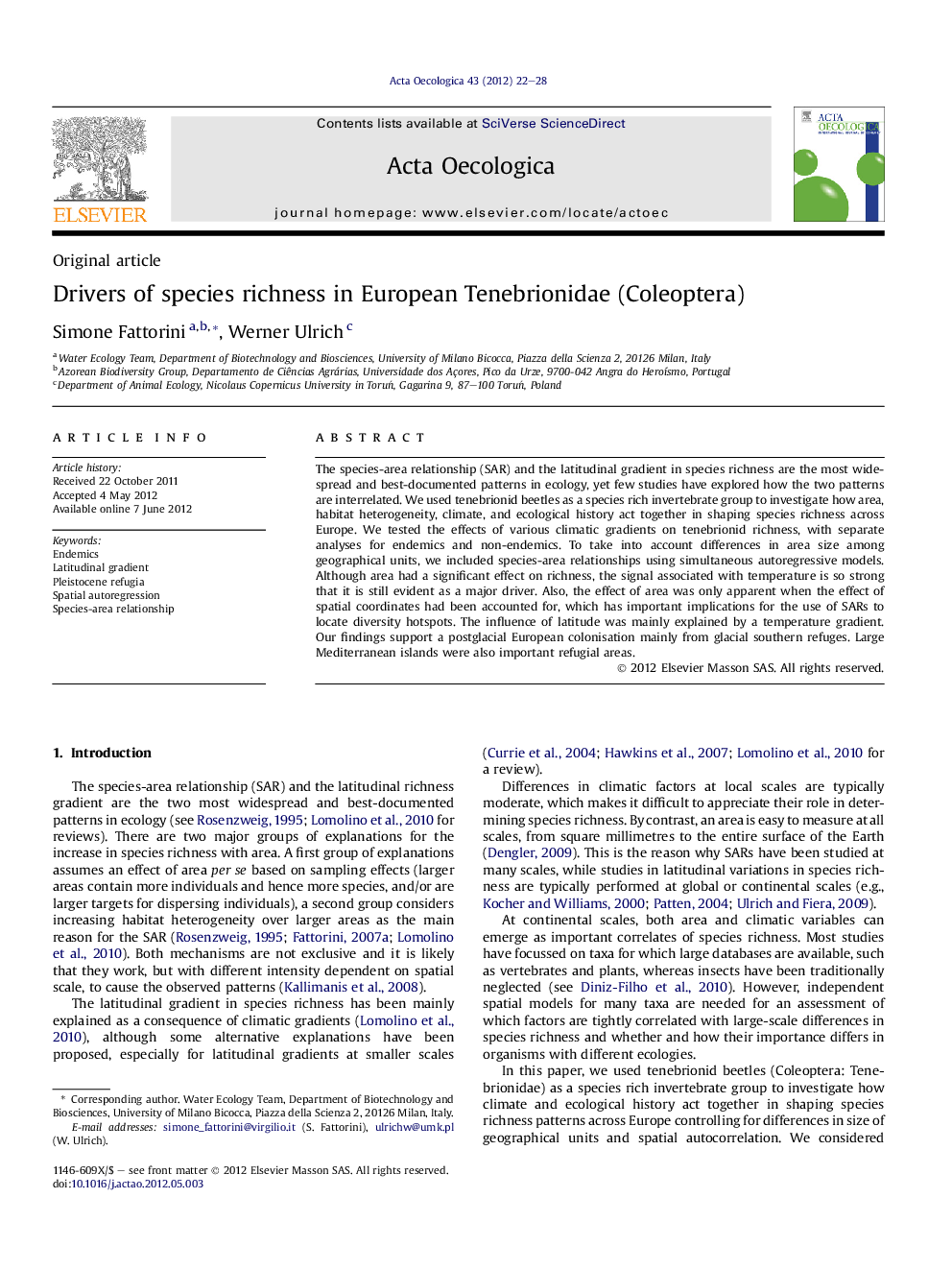| کد مقاله | کد نشریه | سال انتشار | مقاله انگلیسی | نسخه تمام متن |
|---|---|---|---|---|
| 4380857 | 1617728 | 2012 | 7 صفحه PDF | دانلود رایگان |

The species-area relationship (SAR) and the latitudinal gradient in species richness are the most widespread and best-documented patterns in ecology, yet few studies have explored how the two patterns are interrelated. We used tenebrionid beetles as a species rich invertebrate group to investigate how area, habitat heterogeneity, climate, and ecological history act together in shaping species richness across Europe. We tested the effects of various climatic gradients on tenebrionid richness, with separate analyses for endemics and non-endemics. To take into account differences in area size among geographical units, we included species-area relationships using simultaneous autoregressive models. Although area had a significant effect on richness, the signal associated with temperature is so strong that it is still evident as a major driver. Also, the effect of area was only apparent when the effect of spatial coordinates had been accounted for, which has important implications for the use of SARs to locate diversity hotspots. The influence of latitude was mainly explained by a temperature gradient. Our findings support a postglacial European colonisation mainly from glacial southern refuges. Large Mediterranean islands were also important refugial areas.
► Tenebrionid species richness in Europe increases southwards.
► This latitudinal pattern is explained by temperature gradients.
► Endemics support a postglacial recolonisation from southern refuges.
► Large Mediterranean islands are not impoverished and were important refugial areas.
► The species-area relationship is obscured by latitude and autocorrelation effects.
Journal: Acta Oecologica - Volume 43, August 2012, Pages 22–28